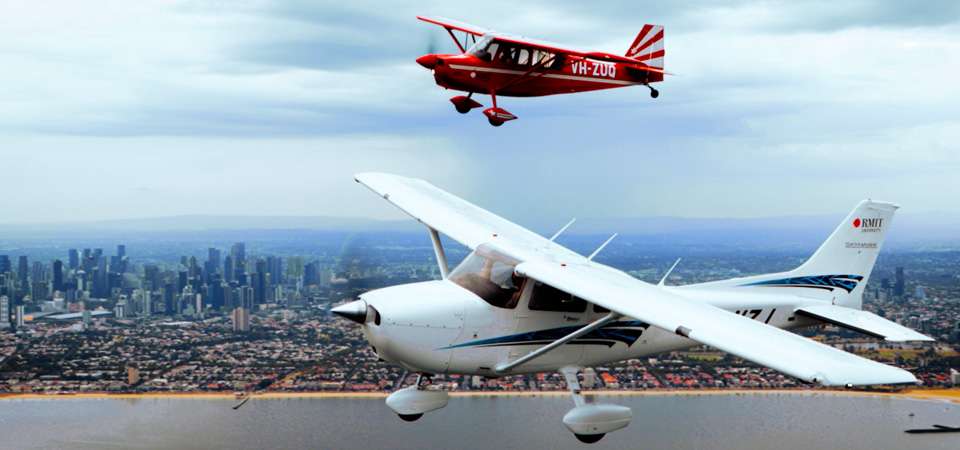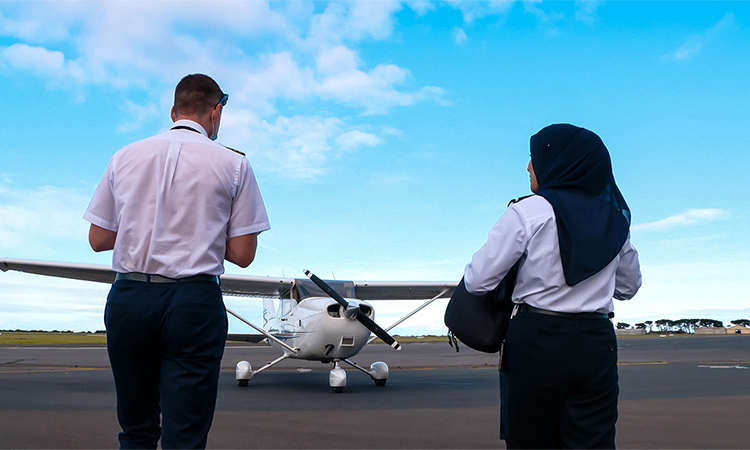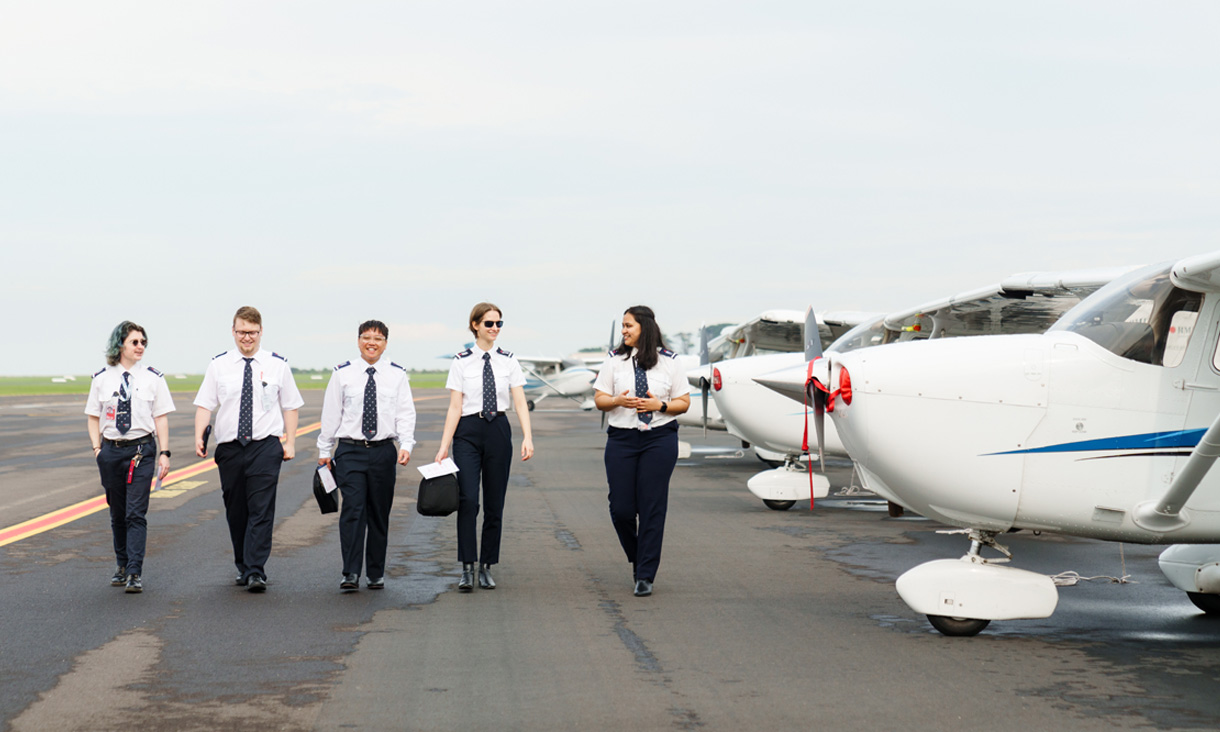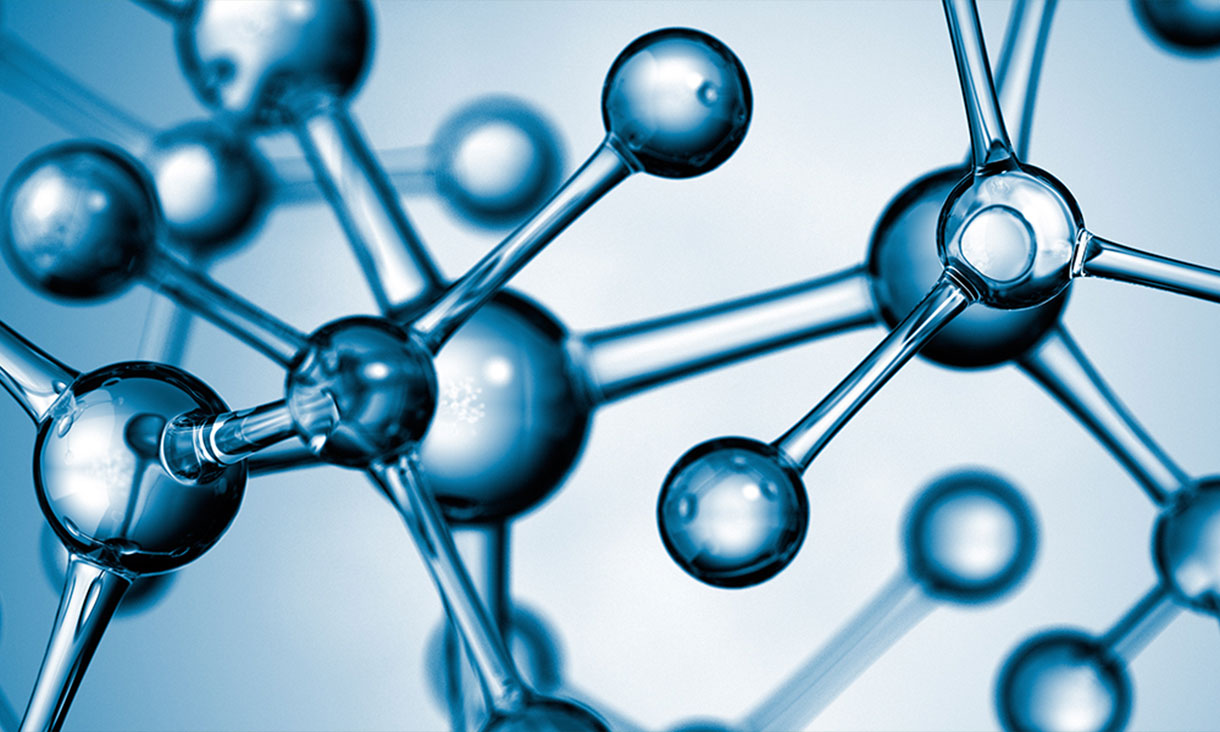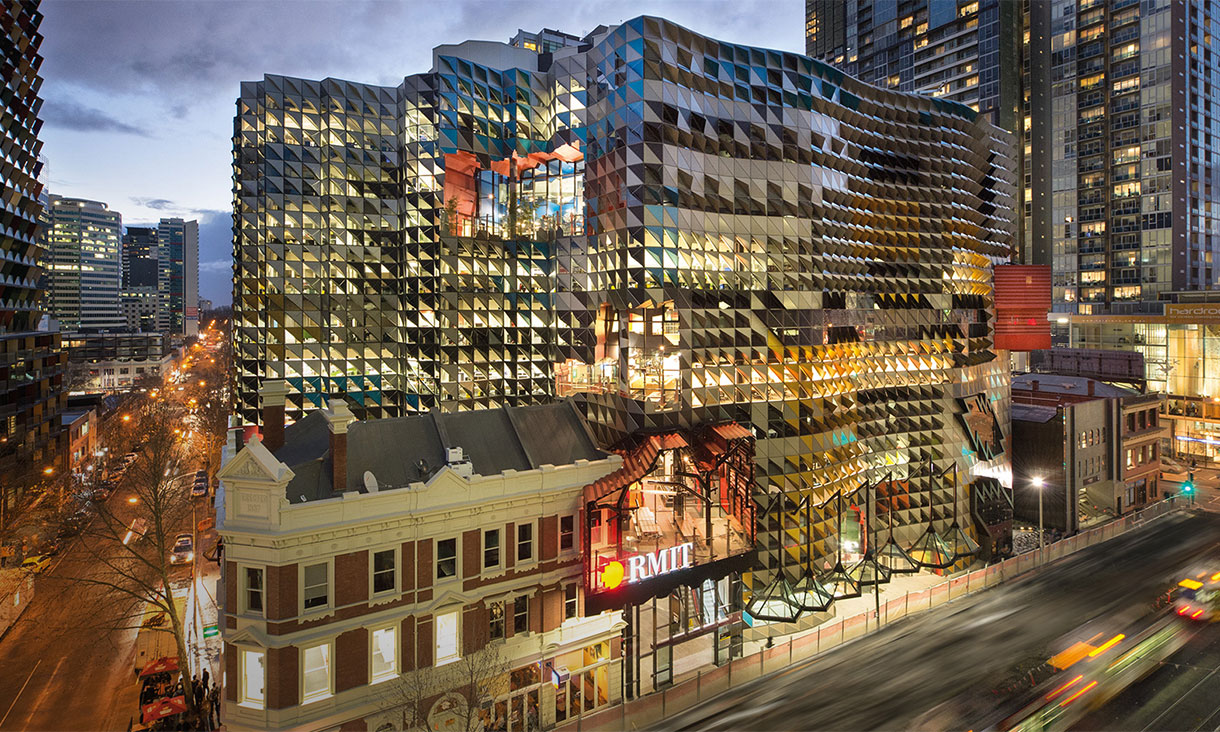Walk and Talk Point Cook Campus
[Start transcript]
[Music]
[Angus]
Hi, welcome to RMIT’s Point Cook campus, the home of RMIT Flight Training. My name is Angus and I’ll be showing you around today.
So, RMIT Point Cook is located 20 kilometres away from the city, right along the coastline of Port Phillip Bay. We are also surrounded by wetlands and beaches, so pilots here get an experience in lots of different scenarios. So, let’s go and have a look.
[Music continues]
We’ve got a lot of open plan learning going on here, so it’s a very social environment. And students learn a lot from each other. As you can see, when we’ve got some spare time, we just come out and have a look at the planes while we work.
Not only is Point Cook the oldest continually operating airfield in the world, it’s also the birthplace of the Royal Australian Air Force. We’re not the only ones who fly here though. So do 100 Squadron or the RAAF Museum. With their Spitfires and other warbirds that they are restoring, if you are here at the right time on the right day, three times a week, they have their air performances. So, it’s great to watch if you’ve got some free time to come down to watch them do their thing.
Now, I’m in the training building, where you’ll be spending most of your time as a student here. So, over here we’ve got the instructor rooms. You’ll go there before and after every flight to brief and debrief every flight you do. Hey, Michael.
[Michael]
Hey, Angus.
[Angus]
Over here we’ve got the training rooms. So, on your theory days, you’ll be here with an instructor teaching your whole cohort. On your flying days, you’ll just be planning your flights, getting to know each other.
Welcome to the operations room. This is where all the scheduling is done. And the keys are stored here for when we need to go out to the aircraft. When we are on short distance flights, just to the Avalon training area, we don’t need to submit flight plans. But when we are on long-distance navigation flights, we do. And this is where we come to do it.
[Music continues]
In general, there are two types of flying we do. There’s visual flying and instrument flying. Typically, we would use visual. But if, for example, we were to fly in clouds, we use instrument flying. And to practice this, rather than go up in the air, we use these state-of-the-art simulators that RMIT has got at Point Cook. These simulators not only can be set to any weather conditions, but they can also be set to simulate the real-time weather that you’d see outside. Let’s have a go.
Here at Point Cook, we’ve got three large runways that we can choose to take off and land from. Out to the west we’ve also got a large chunk of airspace that we use as our training area. That goes from the surface all the way up to 4500 feet. So, it’s plenty of space to get to know the aircraft. Speaking of, this is the first aircraft that you’ll learn to fly at RMIT. This is the Cessna 172. It’s the most commonly used trainer aircraft in the world. And it’s stable, light, easy to learn on, and it’s great for instructing and learning how to fly.
Once you know how to fly the 172, we move you up to more advanced aircraft, which is called the Cessna 182. It’s very similar, but it does have its differences, such as a more powerful engine, and it’s got propellers that can be moved manually. So, what this means is it’s basically like moving from an automatic to a manual car.
Once you’ve learned how to do this and you’ve mastered the propellers, then you can choose to either move onto instructor rating and teach other people to fly, or your multiple engine endorsement. That’s where this aircraft comes in. This is the Piper Seminole and we use it for our instrument ratings and multiple engine endorsements.
Finally, we’ve got one other aircraft. My mate’s in it right now. It’s everyone’s favourite and that’s the Super Decathlon. If you want to do barrel rolls, loops, spins, flying inverted, it can do it all. Everyone loves it.
Before every flight, we just make sure to do a quick walk around. We’ll check the tail, body, wings, engine, everything. Make sure it’s good to go. So, before every flight, we’ve got to make sure to check the fuel tanks. Just to make sure there is no sediment or water in there and that everything is good to go. There won’t be any troubles while we’re flying.
[Music]
Well, I hope you’ve enjoyed the campus tour today of Point Cook. If you’ve got any questions, don’t forget to reach out to the friendly team at Study at RMIT. And we hope to see you soon.
[End transcript]


